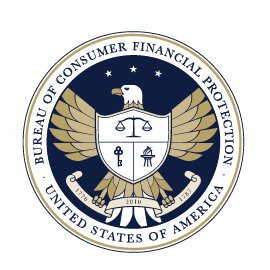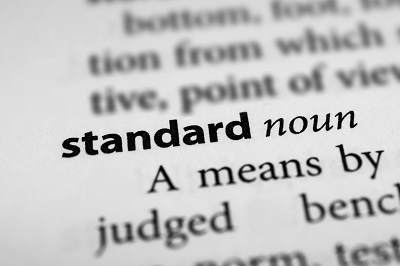In a follow up to an advisory jury’s verdict, finding that a law firm’s pre-suit collection letters contained “false, deceptive, or misleading representations or means in connection with the collection of a debt” while rejecting a claim that the firm’s attorneys were not meaningfully involved in the debt collection process in violation of the federal Fair Debt Collection Practices Act, the accused law firm filed its proposed findings of fact and conclusions of law on June 29, arguing that if their legal services were good enough for Richard Cordray when he held the office of Attorney General of the State…
Posts published in “Debt Collection”
A panel of the U.S. Court of Appeals for the Ninth Circuit recently held that a law firm’s effort to collect homeowner association (“HOA”) assessments through judicial foreclosure constitutes debt collection under the federal Fair Debt Collection Practices Act. In so ruling, for purposes of whether activity constitutes debt collection under the FDCPA, the Court distinguished judicial foreclosures that allow for deficiency judgments from non-judicial foreclosures that do not allow for deficiency judgments. A copy of the opinion in McNair v. Maxwell & Morgan, PC is available at: Link to Opinion. The plaintiff consumer purchased the subject property in Arizona subject…
In a follow-up to an advisory jury’s verdict, finding that a law firm’s pre-suit collection letters contained “false, deceptive, or misleading representations or means in connection with the collection of a debt” while rejecting a claim that the firm’s attorneys were not meaningfully involved in the debt collection process in violation of the FDCPA, the CFPB filed its proposed findings of fact and conclusions of law on June 15, suggesting that the jury’s verdict was misguided. Instead, the CFPB asserted that the applicable facts and law support a conclusion that attorneys with the law firm were in fact not “meaningfully…
Mass. SJC Holds Mass. Debt Collection Regs Apply to Creditors that Auto Dial or Don’t Leave Messages

The Massachusetts Supreme Judicial Court (SJC) recently held that Massachusetts debt collection regulations, which limit how often a creditor may attempt to contact a debtor via telephone in order to collect a debt, apply to creditors that use automatic dialing devices or voluntarily decide not to leave voicemail messages. A copy of the decision in Armata v. Target Corporation is available at: Link to Opinion. The plaintiff initiated a matter in Superior Court, alleging the defendant violated 940 Code Mass. Regs. § 7.04(1)(f), which provides that “[it] shall constitute an unfair or deceptive act or practice for a creditor to contact…
In a recently issued unpublished opinion, the U.S. Court of Appeals for the Fifth Circuit rejected the argument of the attorney defendant who owned a law firm and a debt-buying company that he was exempt under the federal Fair Debt Collection Practices Act (FDCPA) because he was a creditor “by proxy.” Specifically, the Fifth Circuit determined that the attorney, his law firm, and his debt-buying company were all distinct entities as a matter of law, such that his argument that he, as the owner of the debt-buying company, owned the debt and thus he did not qualify as a debt…
By Brent Yarborough and Eric Rosenkoetter On June 13, the Bureau of Consumer Financial Protection issued a consent order with a holding company and its affiliated operating entities engaged in consumer lending. The consent order reflects the parties’ settlement of an administrative enforcement action that focused on the lenders’ debt collection and credit reporting practices. The lenders neither admitted nor denied the Bureaus’ findings or conclusions, but as part of the settlement they are required, among other things, to pay a civil money penalty of $5 million and to refrain from making in-person visits for collection purposes. This is the second consent order…
ND Indiana Grants Class Cert. Over Objections as to Standing, Commonality of Injury, ‘Consumer’ Debt

The U.S. District Court for the Northern District of Indiana recently concluded that the objective “unsophisticated consumer” standard applicable in the Seventh Circuit for whether there was a material misrepresentation under the federal Fair Debt Collection Practices Act (FDCPA) parallels the commonality requirement for class certification under Fed. R. Civ. P. 23(a). In addition, the District Court concluded that receiving a false and misleading dunning letter from a debt collector, as the plaintiff alleged, establishes an injury in fact to the plaintiff. According to the Court, even though the injury was intangible, it was concrete and particularized, thus establishing the…
An advisory jury, empaneled pursuant to Federal Rule 39(c)(1), recently returned an inconsistent verdict after trial in an action brought by the Consumer Financial Protection Bureau last year challenging that attorneys of a law firm specializing in the collection of debts were not “meaningfully involved” in collection activities engaged in by the firm in violation of the federal Fair Debt Collection Practices Act. A copy of the complaint in Consumer Financial Protection Bureau v. Weltman, Weinberg & Reis Co., L.P.A. is available at: Link to Complaint. The jury determined that the law firm’s pre-suit collection letters contained “false, deceptive, or misleading representations or…
The U.S. Court of Appeals for the Ninth Circuit recently rejected a so-called “flat-rating” claim, holding that a company that sent letters demanding that hospital patients pay their overdue medical bills did not create a false or misleading impression that the company was actually participating in collecting the debts in violation of the federal Fair Debt Collection Practices Act (FDCPA), because the company meaningfully participated in the hospital’s efforts to collect debts. A copy of the opinion in Echlin v. PeaceHealth is available at: Link to Opinion. The plaintiff received treatment at a hospital but failed to pay the medical bills. After…
The U.S. Court of Appeals for the Eighth Circuit recently joined with the Third, Fourth, Sixth, Seventh, and Ninth Circuits in applying a materiality standard to section 1692e of the federal Fair Debt Collection Practices Act (FDCPA). In doing so, the Eighth Circuit affirmed the trial court’s order granting judgment in favor of a debt collector and against a borrower. A copy of the opinion in Hill v. Accounts Receivable Services, LLC is available at: Link to Opinion. On Oct. 30, 2015, a debt collector filed suit in Minnesota state court against a borrower for unpaid medical bills and statutory interest under…
In an important decision for the debt buying industry, the Massachusetts Supreme Judicial Court held that passive debt buyers are not “debt collectors” under the Massachusetts Fair Debt Collection Practices Act (MDCPA). A copy of the decision in Dorrian v. LVNV Funding, LLC is available at: Link to Opinion. An amicus brief filed by Receivables Management Association International and written by Maurice Wutscher attorneys in support of the appellant is available at: Link to Amicus Brief. In Massachusetts, “debt collectors” must obtain a license from the Division of Banks, the state agency tasked with regulating debt collection in the Commonwealth. Under the MDCPA,…
Joining with the Fourth and Ninth Circuits, the U.S. Court of Appeals for the Seventh Circuit recently affirmed a trial court’s summary judgment order in favor of a debt collector and against a debtor finding that the debt collector did not violate the federal Fair Debt Collection Practices Act (FDCPA) by only verifying the information in its records instead of contacting the creditor to verify the debt. In so ruling, the Court also held that the debt collector did not violate the federal Fair Credit Reporting Act (FCRA) because it conducted a reasonable investigation into the disputed information. A copy…








